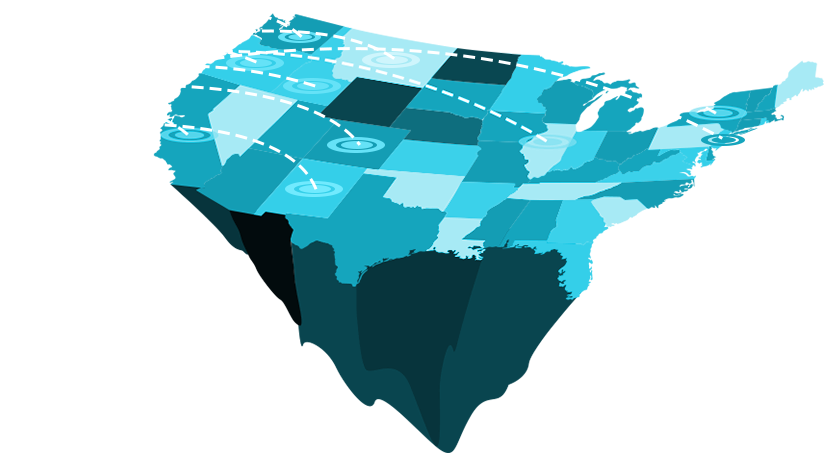Blog > How the Families First Coronavirus Response Act Impacts Payroll and HR

The Families First Coronavirus Response Act, or FFCRA, is a recently enacted federal law that aims to financially protect employees and their families during the coronavirus pandemic. With additional leave benefits and support, employees who cannot work (or telework) due to COVID-19 issues can do what they need to do without losing crucial income.
Employer Paid Leave Requirements
The FFCRA requires employers to provide the following leave benefits to all employees:
- Up to 80 hours (two weeks) of paid sick leave at full pay for employees unable to work because of quarantine and/or COVID-19 symptoms (diagnosed or seeking diagnosis).¹
- Up to 80 hours (two weeks) of paid sick leave at 2/3 pay for employees unable to work because they need to care for a quarantined person or child whose school or child care provider is closed due to COVID-19. Employees in similar conditions as defined by government agencies may also qualify.¹
Individuals who have been employed for at least 30 days also receive:
- Up to 10 weeks of additional expanded family and medical leave at 2/3 pay for employees unable to work because they need to care for a child whose school or childcare provider is closed due to COVID-19.¹
Employers will be subject to these requirements through December 31st, 2020. To give them time to adjust, a 30-day non-enforcement period began April 1st.¹ After this period, payroll and HR departments must be fully prepared to comply.
Prohibitions, Penalties, and Enforcement
To protect against unfair retaliation, the FFCRA dictates that employers may not discipline, discriminate against, or terminate the employment of those who utilize these benefits and/or file a complaint or legal proceeding related to the act. Violations of the act will be penalized accordingly per the Fair Labor Standards Act. Depending on the case, repercussions may range from monetary penalties to criminal prosecution.²
Tax Credits and Other Provisions

Employers who pay for mandated leave are eligible for a tax credit. Qualified employers will receive a quarterly refund for any related costs that exceed the amount of payroll taxes owed. In effect, the government takes on all or part of the cost of providing mandated leave benefits, reducing the financial impact on employers.
In addition, insurance companies are required to cover all expenses related to COVID-19 testing, including the cost of diagnostic testing and the cost of provider, urgent care, or emergency room visits. HR departments need not worry about whether company-provided insurance plans will be sufficient.
Implementing Mandated Benefits in Your Payroll and HR System
Making emergency business changes can be overwhelming. At SNF Payroll, we can help you understand how the FFRCA will affect your business, determine what you need to do to be compliant, and find HR and payroll software solutions that can help your team manage the changes effectively.
To learn more about how we can help, call (844) 200-1870.
Sources:
- https://www.dol.gov/agencies/whd/pandemic/ffcra-employer-paid-leave
- https://webapps.dol.gov/elaws/whd/flsa/screen74.asp

